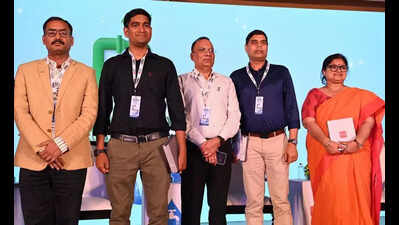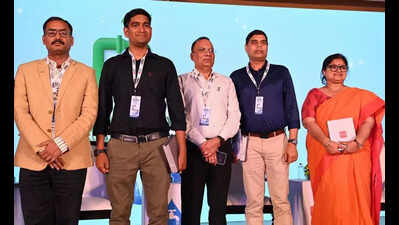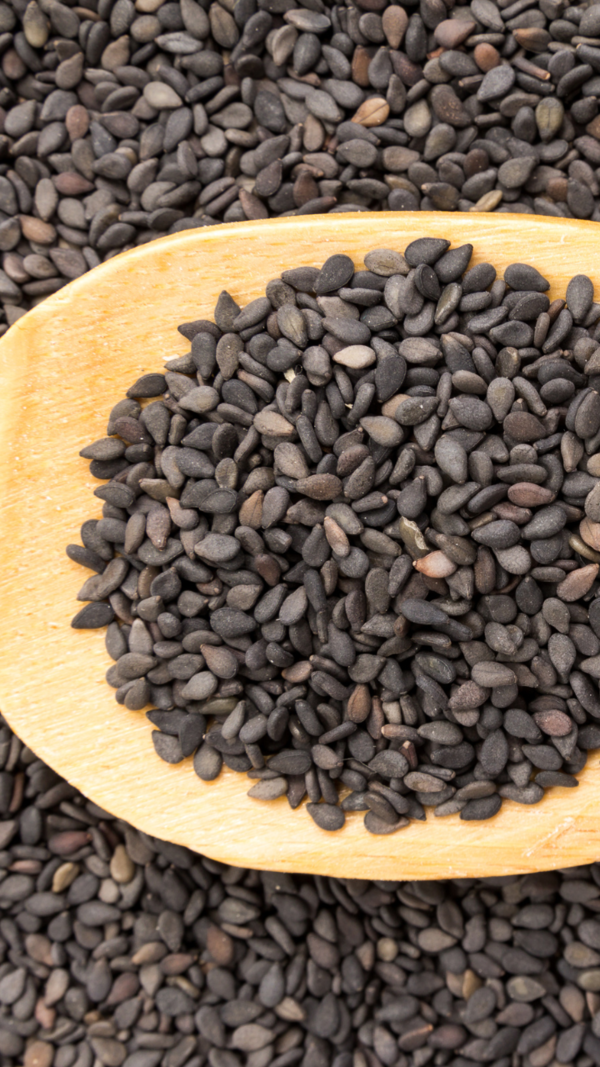- News
- City News
- lucknow News
- ‘With tap water reaching every home, new challenge is awareness for conservation’
Trending
‘With tap water reaching every home, new challenge is awareness for conservation’
Lucknow: While the govt, under the ‘Jal Jeevan Mission', is working towards ensuring clean drinking water for every rural household, the new challenge before it is raising awareness for water conservation among people who are not used to drawing as much water as they want from the tap inside their homes now.
This was highlighted in a programme ‘Water Summit-2025' organised by the Times of India on Wednesday. For decades, many villages relied on rivers, ponds, or hand pumps for water, often unaware of contamination risks. Now, while piped water is available, behavioural change is taking time.
Ramveer Tanwar, a social activist and water conservationist, highlighted, "The natural water resources like small streams, ponds, and other water bodies in our villages, where we once bathed and swam, are vanishing or have become so polluted that we can no longer stand in them. There is an urgent need to conserve these water sources for our future. The Jal Jeevan Mission sources water from groundwater, and to sustain it, we must focus on recharging groundwater. Small water bodies serve as natural recharge wells for groundwater, making their preservation crucial."
Prof Venkatesh Datta, an environmentalist, emphasized, "Water conservation is critical as groundwater levels are depleting rapidly. In Lucknow alone, the water table drops by one meter annually, leading to land subsidence and structural collapses. Treating polluted water costs four times more than supplying clean water, yet awareness about its true value is lacking.
Over 80% of water usage relies on groundwater, yet conservation efforts lag behind exploitation. We need circular water management—use, reuse, and return to nature in a sustainable way.
Smriti Singh, programme director of Water Aid, said, "So far, at least 59,000 village meetings have been held specifically for women, and another 60,000 discussions have taken place with local representatives. However, participation remains a concern."
Officials report that only 10-20% of villagers attend initially, but numbers gradually increase in subsequent meetings.
"We can't force change overnight. It took decades for electricity to be accepted in villages; water awareness will take time too. But we have a solid plan in place, and progress is visible," said a senior govt official.
End of Article
FOLLOW US ON SOCIAL MEDIA











